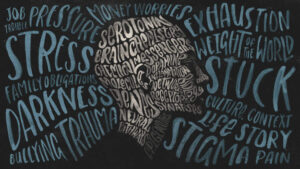Here is a list of 12 easy ways to manage common depression triggers. Depression is a common problem that affects many people. The World Health Organization (WHO) says that around 280 million people worldwide have depression. But the good news is that there are ways to handle the things that often make people feel depressed. Also, we must acknowledge the fact that depression can strike anyone at any time. There is no one reason for it. Though with proper help and medication, you can help yourself and people around you come out of it.
Regular Exercise
Regular exercise improves both your body and mind. If you don’t exercise enough, it can make you feel depressed. That’s why it’s important to try to include exercise in your daily routine. Exercise doesn’t have to be hard workouts at the gym. Any kind of physical activity, like taking walks, doing chores, or dancing, can help you feel better and reduce feelings of depression. Studies have shown that a lot of strenuous physical exercise helps to engage the mind in something else. It takes away the immediate feelings of angst and sorrow away from you.
Get Outside
Not getting enough sunlight can make you feel tired, unmotivated, and even depressed. Sunlight makes us feel happy, and spending time outside is an easy way to get vitamin D, which is good for our health. Many people feel the effects of less sunlight during winter. If this happens to you, you might have something called seasonal affective disorder (SAD). It’s important to get sunlight all year round, but using a special lamp called a SAD lamp can help during the winter when there’s less sunshine available. Also, if you live in a sunny place, make sure to go outside every now and then.
Socializing
Humans need social connections to thrive. Throughout history, we have always relied on being part of a group. Not having enough social interactions can make you feel sad, lonely, and not good about yourself. Even if you’re more of a quiet person, it’s important to spend time with people who make you feel happy and relaxed. This helps keep your mind healthy. Also, make sure you engage with people who make you feel happy and relaxed. Avoid people who are negative all the time or encourage you to remain depressed and morose every day.
Sleeping Well
Getting enough sleep is important for how you feel. When we don’t sleep well, our body has to prioritize what it can handle. When you’re really tired, your body may struggle to manage your emotions. This can make you feel down and depressed. But if you improve your sleep, you can quickly start feeling better. Sleep is one of the easiest and most effective ways to boost your mood. One cannot highlight the importance of good sleep any more. It heals both your mind and body. And when you wake up refreshed, it also heals your mind to a great extent.
Eating Good Food
If you eat a lot of junk food, do you think you would feel good? Your stomach may hurt, and your body might not get the nutrients it needs to work properly. It’s okay to enjoy food, but not having enough nutritious food can make you feel tired and confused, and it’s hard to feel good. On the other hand, eating healthy food can make a big difference in how you feel and improve your mood. A good diet is very much essential to relieving depression. It really helps you a lot. More than you think.
Set Some Goals
Setting goals, both short-term and long-term, can make you feel better and help with managing depression. For example, when work feels overwhelming and makes you feel down, having something to look forward to, like a weekend trip with friends, can change your mindset. It gives your brain something positive to focus on. You can also work on changing how you talk to yourself when you feel overwhelmed, replacing negative thoughts with more positive ones. This shift in perspective can make a big difference in your mood. It gives you something to do with your mind.
A Support System
Building a strong support system is key to managing depression triggers. Having people you can talk to about your feelings is important because it helps you feel less alone.
Research shows that simply having someone who listens and understands can improve your mood and reduce depressive symptoms. If you’re having trouble finding support in your everyday life, there are great online resources available. You can join online support groups, take classes, or talk to therapists in chat rooms. These options provide valuable assistance and connect you with others who can offer support. Also, it helps you discover some good people.
Healthy Boundaries
Learning to set boundaries is crucial for managing depression triggers and improving your well-being. If you have trouble setting boundaries, you might find yourself stretched too thin in different areas of your life, like work, parenting, or socializing.
Knowing when to say no and how to protect your own time and energy is important to prevent burnout and feeling overwhelmed. Consider seeking help through individual or couples therapy to learn how to establish healthy boundaries. Therapy can provide guidance and support as you work on improving your boundaries, leading to a more balanced and fulfilling life.
Meditation
Taking a few minutes each day to practice mindfulness or meditation can have big benefits for your mental health. It’s easy to find 10 minutes in your day for a quick meditation session.
Studies show that spending just 10 minutes a day practicing meditation, mindfulness, or gratitude can make a big difference. It can improve your mood, help you manage depression triggers, and reduce symptoms of depression. So, why not give it a try? Find a quiet place, close your eyes, and focus on your breath or positive thoughts. It’s a simple practice that can have a positive impact on your well-being.
Therapy
Going to therapy is a good idea, even if you don’t think your symptoms are severe. You don’t have to wait until things get really bad to seek help.
Therapy can be helpful no matter what you’re going through. In fact, starting therapy early can prevent things from getting worse. It’s difficult to figure out how to feel better on your own, but a therapist can guide you and give you tools to reduce symptoms of depression. They can help you get back to feeling like yourself again. So don’t hesitate to reach out for support. Also, you will find therapy a lot more soothing.
Tomorrow is a New Day
Writing down your feelings and thoughts in a journal or mood diary can be helpful. It helps you remember that your emotions can change from day to day.
If today didn’t go as planned and you struggled to get out of bed or achieve your goals, remember that you have another chance tomorrow. Don’t be too hard on yourself. It’s okay to have difficult days. But also remember that some days will be easier. Look ahead to tomorrow and see it as a fresh start. Be kind to yourself and keep moving forward.
Ignore the Voice
Sometimes, there’s a negative voice in your head that tries to stop you from helping yourself. But if you learn to recognize this voice, you can overcome it.
For example, if you think an event won’t be enjoyable or worth your time, tell yourself, “You might be right, but it’s better than just staying home again.” Soon, you’ll realize that this negative thought isn’t always helpful. Trust yourself and take a chance on doing something that could be beneficial for you. Also, self consciously ignore the voices at all times.
Also read: Delicious Personalized Christmas Cookies Collection for Employees








































































